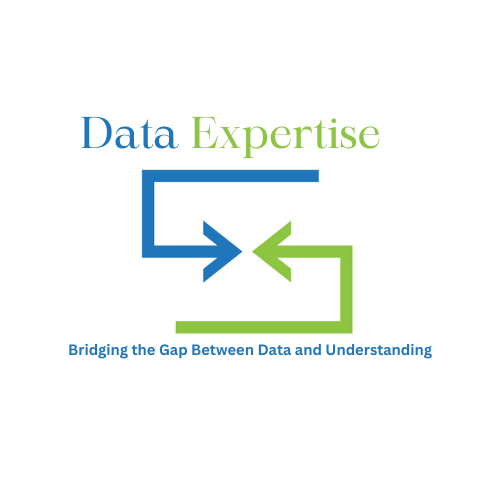Table of Contents
Introduction
Welcome to our comprehensive guide on mastering data governance in today’s complex digital landscape. This blog explores the critical role of data governance frameworks in ensuring effective data management, compliance, and security. We’ll delve into best practices, challenges, and real-world examples that illustrate the importance of a robust data governance strategy.
- Focus on Data Governance: Understanding its role in modern business.
- Maximizing Value and Compliance: How data governance frameworks facilitate this.
The Importance of Data Governance Frameworks
Data governance frameworks are vital for managing data assets effectively. They provide structured approaches to data management, ensuring data quality, compliance, and security, which are crucial in today’s data-driven business environment.

Moreover, data governance frameworks are instrumental in fostering a culture of data awareness and literacy within organizations. By establishing clear guidelines and standards, they empower employees across all levels to understand and engage with data responsibly. This not only enhances individual accountability but also promotes a more collaborative and informed approach to data utilization.
In industries where data is constantly evolving and expanding, such as healthcare, finance, and technology, the implementation of these frameworks becomes even more critical. They act as the backbone for managing large volumes of data, ensuring that it is not only secure and compliant but also accessible and actionable. This accessibility is key to unlocking the potential of data, transforming it from a static resource into a dynamic asset that drives innovation, strategy, and competitive advantage.
- Key Components: Policies, procedures, roles, and responsibilities.
- Benefits: Improved data quality and better compliance.
- Real-world Example: A financial institution’s implementation for GDPR compliance.
Establishing Effective Data Governance Policies
Effective data governance policies set the standards and guidelines for data management, ensuring consistency, accuracy, and compliance across the organization.
Effective data governance policies are the foundation for a unified data strategy. They address key challenges by standardizing data handling practices, and ensuring consistency and compliance. These policies adapt to evolving data landscapes, maintaining relevance and effectiveness in a rapidly changing digital world.
- Key Aspects: Data quality standards, compliance requirements, and security protocols.
- Implementation: Collaboration across departments.
- Real-world Example: A multinational corporation’s global data management.
Data Governance Roles and Responsibilities

Clearly defined roles and responsibilities ensure that everyone in the organization understands their part in managing and protecting data.
In a well-structured data governance framework, roles and responsibilities are delineated to foster accountability and efficiency. From data stewards to chief data officers, each role plays a specific part in upholding data integrity and security, ensuring that data management aligns with organizational goals and regulatory standards.
- Key Roles: Data stewards, data managers, chief data officers.
- Responsibilities: Overseeing data quality, ensuring compliance, and managing policies.
- Real-world Example: Roles in a large healthcare organization.
Data Governance Best Practices
Adopting best practices in data governance is crucial for the success of any data management strategy.
- Effective Practices: Regular data audits, stakeholder engagement, continuous improvement.
- Long-term Success: Sustainability and effectiveness of frameworks.
- Real-world Example: A technology company’s regular data audits and stakeholder meetings.
Data Governance Technologies and Tools
Technologies and tools are crucial in implementing and maintaining data governance frameworks.
The integration of advanced technologies and specialized tools is essential for the practical execution of data governance frameworks. They automate critical processes, enhance data accuracy, and provide valuable insights, thereby streamlining data governance and making it more effective and manageable in today’s fast-paced digital environment.
- Key Technologies: Data quality management software, compliance tracking tools, and data lineage tools.
- Role in Data Governance: Automation and efficiency.
- Real-world Example: A retail company’s use of data quality management software.

Real-World Examples of Data Governance Success
Case studies from different industries illustrate the successful implementation of data governance frameworks.
- Case Studies: Healthcare, finance, technology sectors.
- Impact: Improved data quality, compliance, business performance.
- Real-world Example: A global pharmaceutical company’s framework implementation.
Conclusion
This blog offers a comprehensive look into the critical role of data governance. We’ve highlighted the importance of robust data governance strategies through best practices, challenges, and real-world examples.
- In-depth Exploration: Understanding the complexities and importance of data governance.
- Future Outlook: The evolving role in shaping businesses and industries.
This exploration into data governance has illuminated its pivotal role in modern organizations. By implementing robust governance strategies, businesses can harness their data’s full potential, driving informed decision-making and operational excellence. The best practices and challenges discussed provide a roadmap for organizations to navigate the complexities of data management effectively.
Moreover, the real-world examples underscore the tangible benefits of sound data governance. From enhanced compliance and improved data quality to strategic business insights, these examples demonstrate the transformative impact of well-executed data governance. As data continues to be a key asset in the digital age, the principles of data governance will remain crucial for any organization looking to thrive in a data-centric environment.



Leave feedback about this